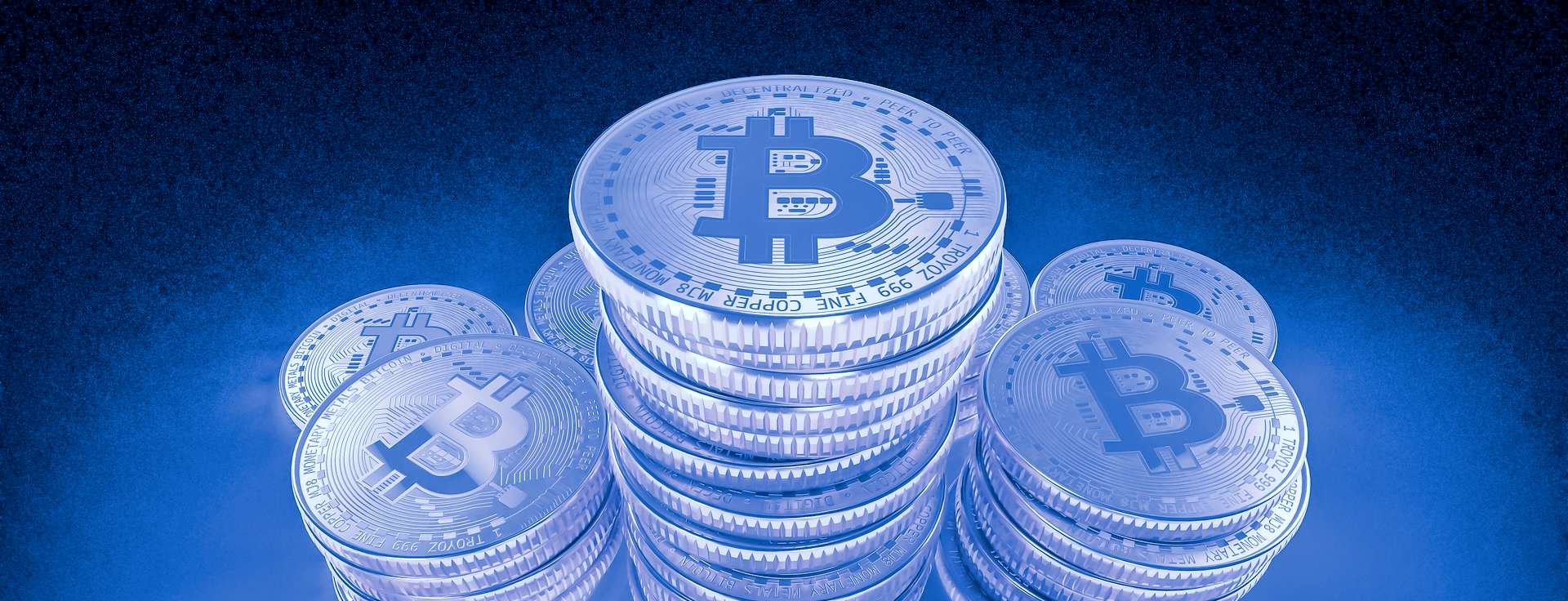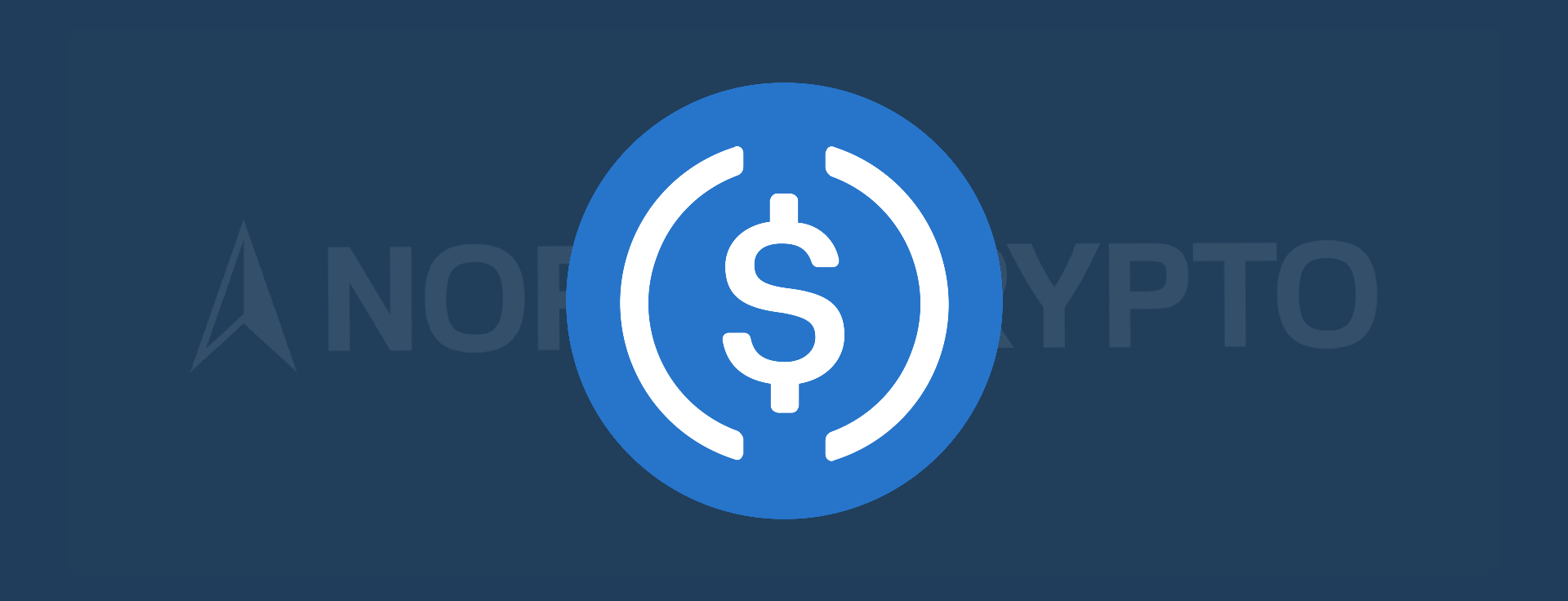
This monthly report reviews the most important cryptocurrency news in February. The report focuses especially on the EUROe stablecoin published in February, Sitra's Web3 publication, Coinbase's Ethereum scalability solution, and the advances made by German banks and Hong Kong.
February in the cryptocurrency market
February was slightly positive for cryptocurrency prices. Of the cryptocurrencies offered by Northcrypto, the best performer was Polygon, whose price rose by more than ten percent during the month. The price of Chainlink was up more than five percent in February, while the price of Ethereum increased about five percent. The prices of Bitcoin and Litecoin rose by less than five percent during the month. The price of Aave ended up a couple of percents lower at the end of the month than at the beginning of the month.
EUROe was launched on the Ethereum blockchain
The first stablecoin regulated by the European Union, EUROe, was launched in early February on Ethereum blockchain. Behind EUROe is the Finnish fintech company Membrane Finance, which initially announced plans to launch euro-stablecoin at the end of last year. The price of one EUROe is supposed to correspond to the price of a euro in a 1:1 ratio, and each EUROe is backed with euro. According to Juha Viitala, CEO and founder of Membrane Finance, Launching a truly regulated EUR-based stablecoin is massive news for both us and the wider European cryptocurrency market and community. In addition, according to Viitala, EUROe aims to bring DeFi to the masses and make it as easy as possible for Europeans to use a currency they trust and know.
Sitra's publication on Web3
In February, the Finnish Innovation Fund Sitra published a 48-page publication entitled "6+1 recommendations for Finland", which examined how Finland could improve the business prerequisites for a new development of the internet based on blockchain technology, i.e., Web3. In its publication Sitra commented on Web3, among other things, as follows: "The decentralized internet can be fairer than the current one, i.e., it gives us the opportunity to build a human-centered and fair data economy based on European values in line with Sitra's strategy." Sitra's recommendations are as follows:
- National virtual currency regulation must be clarified.
- Decentralised autonomous organisations (DAOs) must be nationally regulated on the basis of the Cooperatives Act.
- The security of smart contracts must be ensured through guidelines.
- Clear and predictable taxation of crypto-assets must be ensured.
- Sufficient resources must be allocated to the supervision and guidance of the industry’s operators.
- Low-threshold innovation must be encouraged in the regulatory sandbox.
In addition, Sitra's "+1" recommendation was that the development of Web 3.0 in Finland be promoted by taking it into account in the implementation of the national digital compass by increasing co-operation, skills and public support, and by accelerating tokenisation – the increasing use of digital assets.
Coinbase's Ethereum layer 2 scalability solution
US cryptocurrency exchange Coinbase announced in February that it is developing its own Ethereum layer 2 scalability solution, known as Base. Layer 2 scalability solutions are networks on top of platforms like Ethereum that aim to enable faster and cheaper transactions than the platform below. Coinbase also announced that it does not plan to create its own token for Base, but that ether will serve as a token to pay for transfers. Based on the comments received from Coinbase, Base is a bet that can help enable the next million dApps, i.e., decentralised applications, which are going to bring in the next billion users. According to the comments, this is believed to happen in the next 5 to 10 years. Coinbase also reported that Base's mainnet will be released in the next few months.
German banking giants to offer cryptocurrency services
In terms of managed assets, Germany's second-largest bank, DZ Bank, is fully integrating cryptocurrencies into its asset management services. DZ Bank implements this in collaboration with Swiss cryptocurrency company Metaco. According to comments from DZ Bank, the bank plans to create an attractive (cryptocurrency) solution for customers that can meet the requirements of cryptocurrencies and DeFi instruments.
The German banking giant DekaBank, which manages approximately € 360 billion in assets, also entered into cooperation with Metaco. In cooperation with Metaco, DekaBank will offer services related to cryptocurrency storage to its institutional clients. According to comments from DekaBank, digital assets are a critical part of the future and a new way of presenting assets from currencies to real estate.
Hong Kong’s advances in cryptocurrencies
In February, several cryptocurrency-related news from Hong Kong appeared. Among other things, Hong Kong plans to create a task force to make Hong Kong a cryptocurrency hub. In addition, Hong Kong introduced a plan that would allow retail investors to trade major cryptocurrencies such as bitcoin and Ethereum (ether). This has not been possible as China banned trading cryptocurrencies in 2021. However, according to Bloomberg, which specializes in economic news, the Chinese regime is acquiescent to Hong Kong's current intentions. Hong Kong is a special administrative region of China, which allows them to have their own laws and administration. Hong Kong is an economically significant region, as it is considered the largest economic center in the world after New York, London, and Singapore.
Summary
In February, we received at least two positive cryptocurrency-related news from Finland. The EUROe stablecoin, published by the Finnish company Membrane Finance, came at a pretty good time, as no euro-stablecoin already on the market has yet got high demand. As an EU-regulated stablecoin, the EUROe could now be in a good position to take the number one spot among euro stablecoins and increase people's interest in euro stablecoins. Another promising thing for the future is Sitra's Web3 publication. In the publication, Sitra clearly identifies the potential and benefits of Web3 and highlights relevant recommendations regarding Web3 and cryptocurrencies. It would be desirable for all parties making decisions affecting these matters in Finland to read through Sitra's report.
The announcement of Coinbase's Base scalability solution, which is in development, came as a surprise to many. However, it will be interesting to see how the scalability solution of a publicly traded Coinbase will be able to compete with the already established Polygon, Arbitrum, and Optimism scalability solutions in the future.
The advances made by major German banks and Hong Kong are positive things for cryptocurrencies. German banks can be seen as a clear continuation of the entry of several US banks into the cryptocurrency market over the past two years. The measures related to Hong Kong, have been received quite positively in the cryptocurrency community in general. Hong Kong's activities are seen by many as significant for the future of cryptocurrencies in East Asia as a whole. Some cryptocurrency experts even believe that Hong Kong's measures, combined with the People’s Bank of China's easing monetary policy, could serve as a catalyst for the next cryptocurrency bull market.
Ville Viitaharju
Cryptocurrency specialist
Last updated: 08.10.2024 13:59




